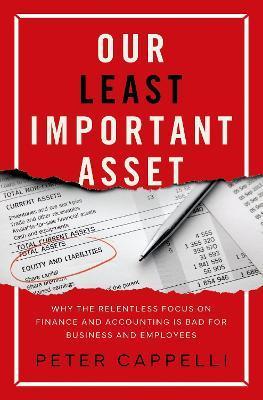A comprehensive and insightful look at the modern workplace and how employees are managed, where the new approach is driven by the quirks of financial accounting to the detriment of employees and the long-term success of the organization. Real wages have stagnated or declined for most workers, job insecurity has increased, and retirement income is uncertain. Hours of work for white collar employees have increased steadily, opportunities for advancement have withered, and evidence of the negative effects of workplace stress on health continues to accumulate. Why have jobs gotten so much worse?
As Peter Cappelli argues, these issues are not a result of companies trying to be cost effective. They stem from the logic of financial accounting--the arbiter for determining whether a company is maximizing shareholder value--and its fundamental flaws in dealing with human capital. Financial accounting views employee costs as fixed costs that cannot be reduced and fails to account for the costs of bad employees and poor management. The simple goal of today's executives is to drive down employment costs, even if it raises costs elsewhere.
In
Our Least Important Asset, Cappelli argues that the financial accounting problem explains many puzzling practices in contemporary management--employers' emphasis on costs per hire over the quality of hires, the replacement of regular employees with "leased" workers, the shift to unlimited vacations, and the transition of hiring responsibilities from professional recruiters to more expensive line managers. In the process, employers undercut all the evidence about what works to improve the quality, productivity, and creativity of workers. Drawing on decades of experience and research, Cappelli provides a comprehensive and insightful critique of the modern workplace where the gaps in financial accounting make things worse for everyone, from employees to investors.










